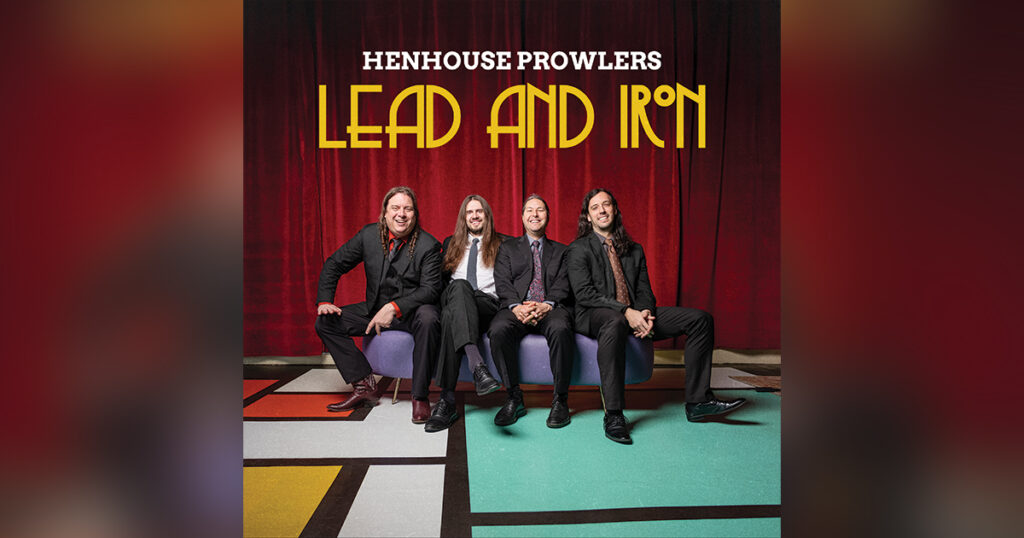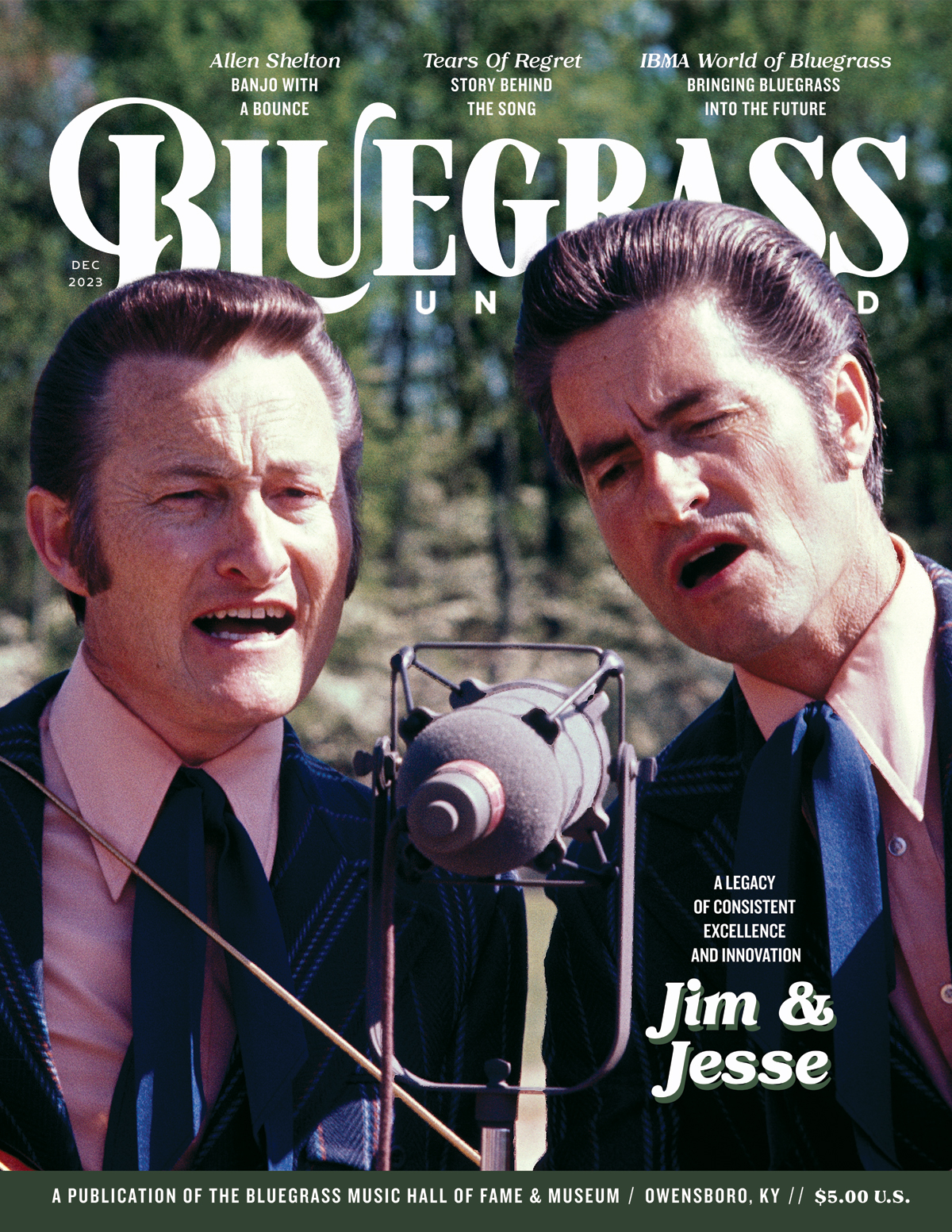Lead and Iron
Henhouse Prowlers’ tenth album Lead and Iron brings the same high-energy excitement to the recording that fans know to expect from their live performances. Not surprisingly, the songs not only reflect the band members’ life experiences as touring musicians and family men, but their experiences as world travelers in their role as Bluegrass Ambassadors through the U.S. State Department.
Each of the four members of Henhouse Prowlers, based in Chicago, contributed his songwriting and vocal talents to the project. They switch out lead vocals, giving the album variety without abandoning their signature “crowd around the mic” harmonies.
Several tracks on the album were born out of the life on the road, always with a strong pull toward home. The album opens with “Home For,” acknowledging that while “the road still has allure,” home life has a stronger draw, especially when “the family’s grown just a little more.”
“Last Run” also chronicles the road back home, though less from the perspective of performers than one man headed home, determined to stay once he arrives. He expresses his regret for times spent away and his good fortune that she hasn’t “moved the key from under the mat.”
Banjo player Ben Wright sings lead on “Forgotten Gravestones,” which he wrote after driving on country backroads, wondering about the lives marked in those old churchyards, as the other members of the band slept.
Some of the songs take a more serious tack, particularly the title track “Lead and Iron.” Written by mandolinist Jake Howard as a response to the string of school shootings in recent months and years, the song is subtle but serious. The lyrics express the frustration of wishing for a different outcome but finding no peace. He sings of “wondering [what] they are up there doing,” imagining children’s “first words spoken, tying shoes and playing games with nothing to lose.” Ultimately, he observes, “It’s raining prayers and it still ain’t helping.”
“Died Before Their Time” was written as a collaboration by all four members of the band with Stephen Mougin, their producer. The song chronicles historical figures, some from areas the band has visited during their diplomacy tours: Nathan Bedford Forrest’s “blood-stained hands,” the Rwandan genocides when Hutus and Tutsis clashed, Pol Pot’s bloody regime in Cambodia and Liberia’s Charles Taylor “teaching little kids to kill.” Rather than burying an implicit message, the song ends with a direct statement on abuse of power:
The moral of the story, friend,
Lust for power has no end
No matter what, when, where, or how
Those who lead must take a vow
To stand up for all humankind
So we don’t die before our time.
The album strikes a balance between the serious and the lighthearted. “Subscription to Loneliness,” which chronicles a series of romances gone wrong, has a Texas Swing vibe, especially with Becky Buller and Laura Orshaw making a guest appearance on twin fiddles. Chris Dollar, guitarist for the band, penned “Passenger Train Boogie,” his answer to the “Freight Train Boogie.” The song, which shows off what the band calls Dollar’s “nimble lips” operates as a dialogue between the train conductor and a man trying to fast talk his way onto the train, anxious to get to “Chattanoogee [because] there’s a guitar picker over there / who’s leanin’ on [his] angel.”
The vocal versatility of the Henhouse Prowlers—particularly the harmony that can make the hair stand up on your neck—is matched by their skillful picking. Whether playing solo breaks or jamming, each member of the band can play at blistering speed or with a more nuanced touch. The dynamics they achieve together bear witness to the friendship shared by the four on and off the stage. As they close the album with “My Little Flower,” it’s easy to hear these guys are having fun.

